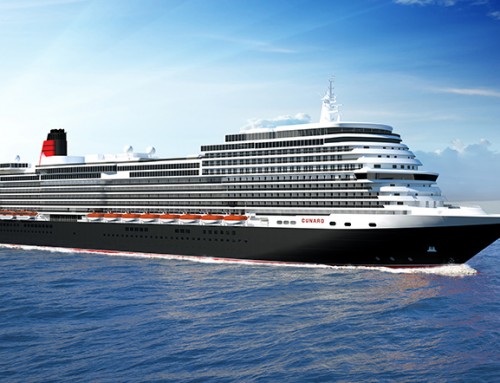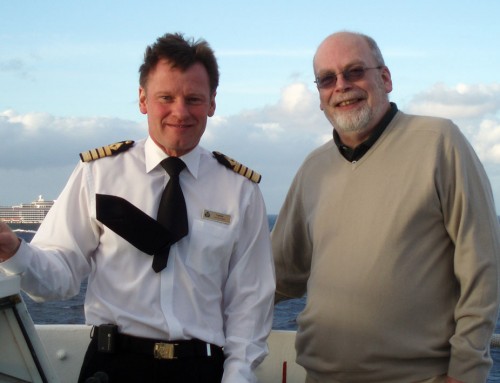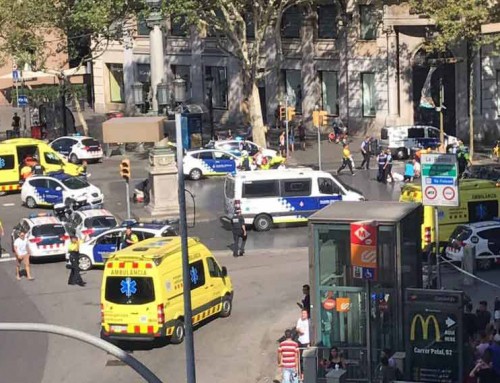 A Catholic priest who told his parishioners he was taking time off to spend a week at a spiritual retreat is going to have to explain to them how he came to be rescued from the wreck of Costa Concordia.
A Catholic priest who told his parishioners he was taking time off to spend a week at a spiritual retreat is going to have to explain to them how he came to be rescued from the wreck of Costa Concordia.
For Father Massimo Donghi had booked a cruise instead of locking himself away in prayer and meditation, and was caught out when his niece said on Facebook that he was among family members safe and well after the ship hit rocks two weeks ago.
“What do you want me to say?” the 41-year-old priest told an Italian news magazine. “I have nothing to add. I’m OK although I’m still a bit in shock. I will talk to my parishioners in church. The judgment of others is not important to me.”
Fr Donghi is one of 3,000 passengers who must now decide whether to accept Costa’s offer of £9,000 compensation following the tragedy in which 17 passengers are known to have died, and a further 15 are still listed as missing.
The amount, agreed between the company and 15 Italian consumer organisations, is in addition to reimbursement of the cruise fare, travelling expenses, and any medical bills. It covers passengers for losses of belongings and psychological trauma but does not apply to those who suffered injuries or to the families of those who lost their lives.
Costa say the offer exceeds the amount required by international convention, but lawyers in Italy and America are preparing claims of more than £100,000 per passenger. Those who accept the Costa deal must agree not to sue the company for further damages.
In a separate deal for 1,023 crew members, the International Transport Workers’ Federation, says it has won agreement that they will be paid until the end of their contracts or at least for two months for those near the end of their contracts. They will also be able to claim reimbursement for some of the expenses incurred, as well as for travel and medical expenses, and up to £2,250 for loss of personal effects.
 COSTA spokesman Clarence Mitchell (left) has responded to my request for information regarding the company’s future plans – but not with answers. I had emailed him three specific questions earlier this week and when he had not replied by Thursday evening, I sent a gentle reminder.
COSTA spokesman Clarence Mitchell (left) has responded to my request for information regarding the company’s future plans – but not with answers. I had emailed him three specific questions earlier this week and when he had not replied by Thursday evening, I sent a gentle reminder.
This brought a quick response, but only to say: “Your questions were received and are currently being processed by my colleagues in London.
Rather more disturbingly, Mitchell went on to say: “I am, of course, fully aware of the blog you wrote on January 24 and was somewhat disappointed that you chose to publish such assertions about me without any attempt to seek comment or balance.”
The “assertions” to which he has taken exception were that his role so far appeared to brief against the captain of Costa Concordia in order to divert scrutiny away from the behaviour of the company – the sort of procedure which is common in such crisis management situations.
My questions were, I thought, straightforward and non-controversial.They were:
1. Micky Arison said last week that Costa Concordia was expected to be out of service for the remainder of the fiscal year and possibly longer. Is Costa Crociere hoping to be able to salvage the vessel and return it to service? Does the company expect to undertake a survey to examine the possibility of bringing the ship back into use?
2. I have seen reports that Costa neoRomantica will take over Costa Concordia itineraries when it emerges from drydock in March. Is this correct?
3. Have the events of the past few days had any effect on plans for the scheduled launch of Costa Fascinosa in May?
UPDATE: Answers now received.






Sounds like fair questions to me!